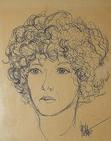N.L. Brisson's Blog, page 11
September 14, 2021
The Reading List by Sara Nishe Adams – Book
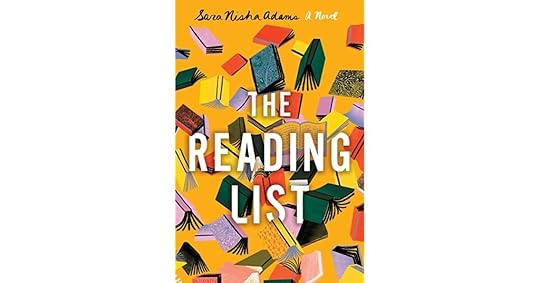 From a Google Image Search – goodreads.com
From a Google Image Search – goodreads.comIn Sara Nishe Adams’ book The Reading List, one of the main characters, Aleisha, has a summer job at the Harrow Road Library, a small neighborhood library in danger of closing. The library has been forgotten by residents in the bustle of daily life. Aleisha is at the checkout desk and is not in a good mood when an old man, Mukesh, cannot even open the door to the library. She is short with him, and he leaves upset. Aleisha’s boss takes her to task about her behavior. She is the librarian he tells her. She needs to take her responsibilities seriously. Aleisha is young. She doesn’t like being scolded, but she got this job because her brother, Aidan loved this library and he had also worked there one summer. She decided she would behave for her brother’s sake. When Mukesh forces himself to return to the library Aleisha is a different person. She has found a list in the library, left on a table. It’s a reading list. The first book on the list is To Kill a Mockingbird, although the first book mentioned in a chapter title is The Time Traveler’s Wife.
Mukesh lost his wife to cancer. She was a voracious reader. Mukesh was not. His wife also read books with her granddaughter Priya, and Priya became a book lover like Naina. Mukesh was not making much headway with Priya. She would find a chair at his house and read and ignore her grandfather. When Aleisha recommended that Mukesh read To Kill a Mockingbird, the book interrupted his grief and gave him a way to stay close to his wife even after death. This also gave him a way to be more pleasing in the eyes of his granddaughter, Priya.
In fact, everyone who found that reading list, including Leonora, Chris, Indira, Izzy, Joseph, Gigi, Aleisha, Mukesh found their lives changed by the characters and themes in those books and by sharing their thoughts about the books with others. Eventually, it seems, the repercussions from this ‘reading list’ may even end up saving the Harrow Road Library.
This is a simple tale that ends up having more depth than you would think. The problems these characters are dealing with in their personal lives are rather serious ones that could derail a life, and in real life such traumas do psychological damage that loneliness exacerbates. Some of these characters have lost loved ones, some are troubled by social difficulties, one character is dealing with such hopelessness that he cannot cope with it. Not everyone is saved. But a community of fictional characters, relevant plots, and a cause offers a reset to more than one of the characters in The Reading List, who are intended to represent real people.
Who made the copies of this book list and distributed them? Will we find out? What nationalities are these people who all live in London now? Do people from Kenya eat Indian food? What is the religion of many of the characters? Does it matter if we know the answers to any of these questions when the same solution seemed to work to pull almost everyone out of their personal preoccupations and isolation. It’s a sweet book. I know we are not supposed to use the word ‘sweet’ when describing literature. There is bitterness in this story also. But it is an uplifting story overall and it would not hurt anyone to read the books on that reading list. In fact, I might read some of them again.
September 2, 2021
The Guide by Peter Heller – Book
 From a Google Image Search – The Independent
From a Google Image Search – The IndependentThe Guide by Peter Heller also features Jack from Heller’s book The River. In The River Jack loses his best friend, Wynn. Wynn was the poet of the pair, so we lose some of the cadence of the story of the canoe trip to Hudson Bay. Jack has been back at home helping his father on their ranch and things are caught up leaving Jack some time to take a guide job and earn some money. Not only was Jack practically born on a horse, but he is an excellent fisherman, kayaker, and canoeist. A lodge serving very wealthy clients has lost a guide mid-season so Jack takes the position. He regrets his decision almost as soon as he meets the man who runs the operation, Kurt Jensen, and learns all the strange rules about what he is and is not allowed to do. Jack feels that something about the place just doesn’t feel right. He immediately goes off fishing to learn the streams and because he feels better when he is smelling pine and tying flies and drifting his line into a spot full of the kinds of bugs fish loved to eat.
He is assigned to be fishing guide and teacher for Alison K., who he intuits is someone famous. He doesn’t recognize her, but as they spend the days on the stream, he recognizes that she is a famous singer from the snatches of song she sings to herself as she fishes. The odd part of this place is all the prohibitions. You could not go past the bridge across the stream because the old man on the property next door would shoot you. There were cameras mounted in places where no cameras should be needed. Jack could not keep his guns with him, or his truck. You needed a passcode to go anywhere. Kurt seemed upset when Alison and Jack went into town for dinner one night. The people seemed odd also. They had bandages on their hands and circles under their eyes one day and the next they were perky and well. Fortunately, Jack finds an ally in Alison. They fish and snoop together.
This book is driven by plot much more than The River which was driven also by the style of the prose. The topic of The Guide is shocking and one that has not often come up in other books I have read. As a mystery, this story works very well. It also has an element of social commentary to give it heft. And our heroes come close to dying. Except for the lack of romance, which is sort of refreshing, it’s all very satisfying. And my mind foresees the possibility of future romance. I know, I am such a girl. Just ignore it if it offends.
August 28, 2021
The River by Peter Heller – Book
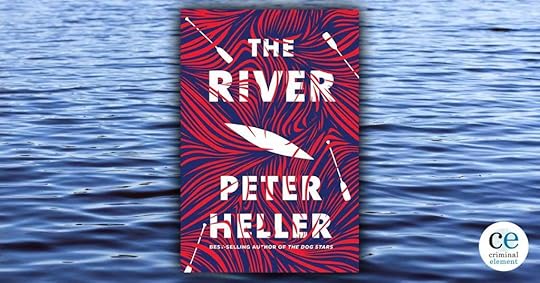 From a Google Image Search – Criminal Element
From a Google Image Search – Criminal ElementThe River by Peter Heller took me back to my teen years when my brother and his best friend, if they had more money, could have easily been Jack and Wynn, the young men in this story. This is a tale that runs by as fast as a river current. Jack and Wynn love nothing better than being outdoors, adventuring in a canoe, fishing and hunting and smoking their pipes on a riverbank in front of a fire. They are both very experienced. Jack grew up on a ranch and lived on horseback from a very young age. He learned to accept both hardships and pleasures as normal occurrences. His judgment did not get clouded by adrenaline. Wynn grew up in the more tamed nature of New England in a loving family. He knew how to stay safe when away from civilization, but he did not have to develop the toughness that Jack’s life required.
These two friends, brought together by their interests, have planned to go on a canoe trip up to Hudson Bay. They have carefully collected their supplies and figured out how to stow them in the canoe to keep their craft balanced and to keep their supplies dry. But there are forces afoot on the river that leads to Hudson Bay over which they have no control. There are two other parties on the river. That should not have been a problem, but people are unpredictable, even adventurers do not all have trustworthy characters. Nature becomes a potent adversary in this river equation as these folks all try to outrun a forest fire to make it to Hudson Bay to get a plane out. The one thing Jack and Wynn decided not to bring with them, a sat phone, would have been the most essential tool to have on this expedition. What ensues is one nail-biting situation after another. You may be able to trust your boon companion, but you cannot trust other people and you cannot predict what nature will throw at you. (And, perhaps, you don’t want to be a woman on the river.)
The voice of the narrator, with its Hemingwayesque short ‘illegal’ sentences suits the backwoods adventure and these young men who approach life, if not grammar, with planning and almost reverence for form and well-practiced routines. Frequent literary references show that these boys are more than just hicks. This is a voice I have heard before, but my brain won’t remind me of exactly what author it resembles, perhaps Mark Twain. Poetic descriptions are drawn without effort, never overdone.
“The canoe moved this morning as if greased. North again toward the top of the lake where it became a true river. They let their eyes rove the shore looking for the colors of a tent or tents, the shape of a boat on a beach, but saw only more patches of yellow in the trees and a swath of orange black-eyed Susans on the shore. They watched a skein of geese fly over that end of the lake, just one side of the V, an uneven phalanx that curved and straightened as they flew in constant correction. The distant barks drifted down.” (Pg. 36)
“They got hot. They paddled hard. Almost thirty miles on a flat-water current was a long way even for them. Because the river slowed and expended itself in unexpected wide coves. From which loons called as they passed—the rising wail that cracked the afternoon with irrepressible longing and seemed to darken the sky. The ululant laughter that followed. Mirthless and sad. And from across the slough or from far downstream the cry that answered.” (Pg. 1160
There is a new book The Guide by Peter Heller which features Jack once again. Can’t wait.
August 22, 2021
The Cellist by Daniel Silva-Book
 From a Google Image Search – Houstonian Magazine
From a Google Image Search – Houstonian MagazineThe Cellist by Daniel Silva-Book
The Cellist by Daniel Silva begins with a painting, as Gabriel Allon spy stories often do. It begins at Isherwood Galleries with Sarah Bancroft, the beautiful agent Gabriel recruited in The New Girl. Sarah likes to believe Gabriel managed to ruin her for any other life. Right now, Sarah is running the gallery. She decides to sell a somewhat damaged painting called The Lute Player, attributed all these years to the wrong artist. She sees it as a challenge to do this during the COVID-19 pandemic and the gallery could certainly use a spectacular sale. Sarah thinks Viktor Orlov might buy the painting if Gabriel will restore it. Viktor is a Russian oligarch, out of favor with the leader of Russia, hiding in plain sight in England. However, when Sarah gets to Viktor’s house the door is unlocked, but no one answers the bell. She discovers Viktor dead in front of a packet of papers he has just opened. Fortunately, she knows better than to touch anything. The papers are covered with a fine layer of powdered Novichok, a nerve agent.
And there begins a tale of Russia, one of Gabriel’s favorite places to try to fight for human rights and get rid of the bad guys. This is a story of the moment, and I liked it far more than Silva’s other modern story of terrorism, The Black Widow. Perhaps I was simply used to time-mellowed alleys in old world Vienna, scuffles with corrupt Swiss bankers who paid Nazis big bucks for stolen Jewish possessions, his vendetta with the Catholic priests who sided with Nazis, and his special relationship with the Vatican. Something as modern as dealing with ISIS in modern-day France seemed outside Silva’s usual oeuvre.
But Isabel Brenner, the talented cellist who can hold entire symphonies in her memory, is a fine addition to the lovely women Gabriel recruits. He did not recruit her at random. She works for the Russian Laundromat, a secret arm of RhineBank (fictional substitute for DeutscheBank). She is the one who has been passing on RhineBank data sheets to a female Russian journalist Gabriel knows well. Isabel identified herself as Mr. Nobody. Gabriel must decide if Isabel is the one who dusted the documents handed to Viktor with Novichok, or if her spying had been discovered and she was now being used.
We’re talking Russia here–a Russia run by thugs, killers, and thieves. A Russia still governed by a leader trained by the KGB and his cagey bag man Arkady Akimov. Arkady may be so blinded by wealth that he is willing to steal from a man who is more ruthless than he is, but he also loves classical music and indulges in philanthropy with his stolen money. Gabriel comes up with a plot which he hopes will topple RhineBank and Arkady, and perhaps even Arkady’s old neighborhood pal, the president of Russia.
Gabriel’s wife, Chiara, has wrested from him a promise that he will serve only one term as the head of the Israeli secret service after which they, and the twins, will retire to Vienna to be near Chiara’s aging father. Gabriel is using his old team, perhaps in an audition to see who will run ‘the office’ next. The women Gabriel recruits to help in his operations rarely come away unscathed, and neither does Gabriel. Gabriel ends his story in Washington, DC on the worst possible date, January 6th where he runs into an extremist Qanon believer with a gun. She shoots him through and through. Chiara has one more reason to extort a retirement from a husband who keeps saying that he wants to retire and then getting sucked in one more time. If he lives, will he finally retire. Not if Daniel has a few more books to write which we hope he does. Readers will demand more Gabriel Allon in some form. Although Silva’s commentary on January 6 th and Qanon will not please everyone, this reader felt he expressed himself very well on those subjects.
Gabriel serves as an investigator to allow Silva to expose injustices to his readers. Gabriel also exacts the kinds of vengeance we would all like to reap sometimes. The venality people get up to in this world often makes us despair. Do human beings have any redeeming qualities.? Gabriel not only gets revenge, but he has many redeeming qualities that remind us that life is both yin and yang, cowboys and outlaws, Nazis and resistance fighters. Some complain that this makes Gabriel unbelievable as a character, but not if we see him as a teacher, a symbol and ‘the tip of the spear’.
August 18, 2021
The Guilt Trip by Sandie Jones-Book
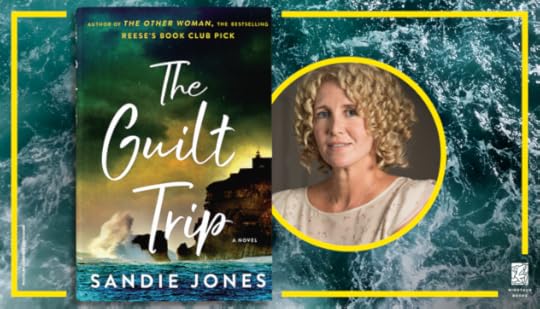 From a Google Image Search-Barnes and Noble
From a Google Image Search-Barnes and NobleAli is marrying Jack’s brother Will, but everyone thinks that she is showy and inauthentic. She loses her passport just as they are all trying to check in at the airport to fly to a villa in Portugal-a destination wedding. Then everyone else loses their patience.
The Guilt Trip by Sandie Jones gives us a tale of misjudgments and suspicions. Rachel, Jack’s wife, tells the story, and we are inside her head. Her head tells her that Ali is having an affair with her husband Jack. Will, Ali’s husband-to-be, is Jack’s brother. Rachel’s best friend Noah and his wife, Paige, are also staying at the villa. After speaking with Noah about their past together, Rachel is obsessed with her own guilt trip, which makes it more difficult to focus on the social interactions around her. She draws several incorrect conclusions.
Fortunately, Jack and Paige are smokers, so they get to disappear periodically to have a smoke, thus giving Rachel plenty of time to indulge her fears and wallow in her guilt. Ironically, she is probably one of the least guilty people at the wedding.
The events that bring the wedding weekend to a dramatic conclusion are certainly unusual, but it’s difficult to ‘suspend our disbelief’. The restaurant chosen for this expensive destination wedding is described as structurally unsound, somewhat ramshackle. Why would the couple pick such a spectacular villa to stay in before the wedding and such a rundown reception venue? Given what happens, far more casualties would have been expected.
What kept me reading is the actual guilt trip at the center of the story. The guilt trip itself was entirely believable, as were the superficial judgments made about Ali’s character. However, the astounding events at the end were a bit too engineered and unlikely. As for Ali, well, I can’t even tell you, but all is revealed in the aftermath of the dramatic denouement.
August 7, 2021
Fugitive Telemetry by Martha Wells-Book
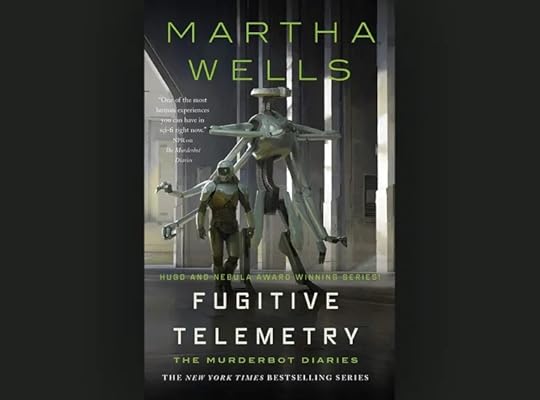
The Murderbot Diaries by Martha Wells is a fun series for all fans of space and science fiction. This particular addition to the series is called Fugitive Telemetry. When our Murderbot removed his governor module and became aware of his intended purpose he was aghast. He really was not at all inclined to go around murdering humans, although it was much easier with evil humans. Much of the world at this time is run by corporations who have their headquarters in the corporate rim. GrayCris is one of the worst, willing to commit all kinds of mayhem for profit.
Murderbot met up with a research space lab piloted by a bot named ART. ART and Murderbot did not get along well at first. MB turned ART on to the videos of his favorite soap operas and saved the ship from an attack. Art helped MB use the medical unit aboard ship to change himself into a less obvious Security unit or Sec Unit. But he still has his guns in his arms so, if necessary, he will kill in self-defense or to save his new human cohorts.
Murderbot saved Mensah, the leader of Preservation Station, a semi-utopian independent colony established outside the corporation rim. She had a run-in with GrayCris and MB saved her. She took MB, now a Sec Unit, home to Preservation where he lived as the only augmented human. Sec Unit didn’t like humans much, but he did like Mensah and he knew GrayCris would come after her again.
But that’s not what happens in Fugitive Telemetry. This time Sec Unit solves a murder on Preservation Station, a very rare occurrence. What he uncovers is a crime we find fairly common on earth and his investigation involves a rescue. He also makes some headway in becoming accepted by the Preservation police force. Just a little candy bar of a story in the grand scheme of things; fast, nutty and satisfying.
July 26, 2021
The Paper Palace by Miranda Cowley Heller-Book
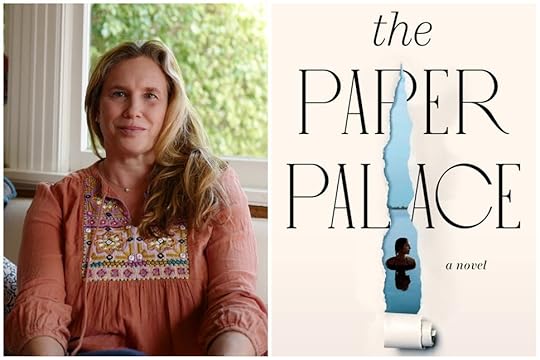 From a Google Image Search – evening standard uk
From a Google Image Search – evening standard ukSummer beach books are usually light, enjoyable, and often as forgettable as a strawberry Twissler®. The Paper Palace by Miranda Cowley Heller is a cut above the usual beach book. This might be Heller’s first novel, but she has props from a career writing for HBO and for TV. A novel is a different beast than a screen play, but it’s not a distant reach. Heller’s characters are strong, especially the women, but even some of the men stand the test of reader approval also.
Wallace, an indifferent mother, a beautiful woman, after her husband divorces her, spends too much time needing the attention of other men, and trying to force relationships that are not close or rewarding enough, to suffice. When she finally gives up on looking for love she becomes the matriarch with enough feisty character to become a better grandparent than she was a parent. Still, however much you might appreciate her wit and beauty, you wouldn’t want to leave your children alone with Wallace for too long. She’s too self-absorbed.
The Paper Palace is the name of the Cape Cod summer house that has been in the family for decades. It was built when times were economically tough, so it is not necessarily glamorous. There is a Big House with kitchen, living room, porch, pantry and bathroom. There is an outdoor shower and several ticky-tacky cottages just for sleeping. It’s a place that you learn to love through familiarity and longevity. The camp faces a pond, with a narrow wood beyond, and at the end of the wood is the ocean. The wildlife the family encounters are more pond and woods creatures than ocean dwellers. Of course, the family makes many visits to more accessible beaches on the Cape.
Leo is the most recent of Wallace’s husbands. He’s a jazz musician and is gone a lot. Leo and Wallace fight frequently. He has two children by another marriage, but his daughter stays with the mom. Wallace’s family adds Chuck. To Wallace and Leo, Chuck is a socially awkward, poorly adjusted boy who will grow out of his difficulties; to Wallace’s daughters, Elle and Anna, he is a creepy and guilty secret they keep because they can’t bear to break up Wallace and Leo.
Secrets have consequences and these secrets fall far more on Elle than on Anna, because Anna goes away to boarding school. And yet, even as a young girl, Elle has far better taste in men than her mother ever had. Both Jonas and Peter love her. Would she have married Jonas if they didn’t share a terrible guilt of their own, and if Chuck wasn’t involved in the whole mess?
The story and the characters are enough to hold your interest, but Heller uses her words to bring us to camp with her. Through Wallace and Elle, she takes us through the earthy and the sublime, the earthy being her witty and profane conversations, the sublime being the way she describes nature and the close connections having a lifetime of Cape Cod summers offer those who are lucky enough to have such a legacy.
July 8, 2021
Caste by Isabel Wilkerson-Book
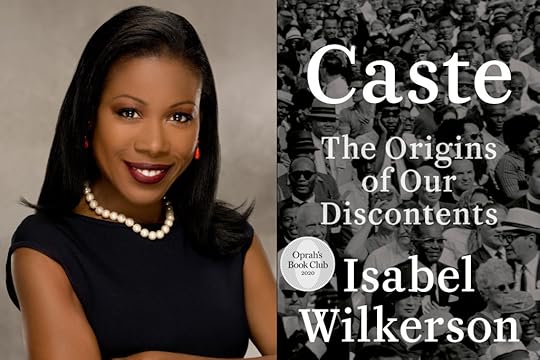 From a Google Image Search – The Kojo Nnamdi Show
From a Google Image Search – The Kojo Nnamdi ShowEven if Oprah had not chosen Isabel Wilkerson’s book Caste: The Origins of Our Discontents for her book club this book was destined to become a classic about caste and the role it has played in Hitler’s Nazi Germany, that it still plays in India, and the role it plays in America. We don’t often call the racism we practice against African Americans a caste system, but Wilkerson feels that something that began with enslavement of humans from the African continent has become set in the kind of same kind of stone as the caste system in India. Further she believes that America’s treatment of African Americans after slavery informed the definition of Aryans as the only people with genetics pure enough to remain in the new Germany under the Nazi regime. She has done her due diligence and backs her contentions up with plenty of anecdotes and quotes from those who wrote to preserve the system, and those who wrote to end it.
Pg. 32 “In the winter of 1959, after leading the Montgomery bus boycott that arose from the arrest of Rosa Parks and before the trials and triumphs to come, Martin Luther King, Jr., and his wife, Coretta, landed in India, in the city then known as Bombay, to visit the land of Mohandas Gandhi, the father of nonviolent protest. They were covered with garlands upon arrival, and King told reporters, “To other countries, I may go as a tourist, but to India I come as a pilgrim.”
“One afternoon, King and his wife journeyed to the southern tip of the country, to the city of Trivandrum in the state of Kerala and visited with high school students whose families had been Untouchables. The principal made the introduction.
‘Young people,’ he said, ‘I would like to present to you a fellow untouchable from the United States of America.’
King was floored. He had not expected that term to be applied to him. He was, in fact, put off by it at first. He had flown in from another continent, had dined with the prime minister. He did not see the connection, did not see what the Indian caste system had to do directly with him, did not immediately see why the lowest-caste people in India would view him, an American Negro, and a distinguished visitor, as low-caste like themselves, see him as one of them. ‘For a moment,’ he wrote, ‘I was a bit shocked and peeved that I would be referred to as an untouchable.’
Then he began to think about the reality of the lives of the people he was fighting for—20 million people, consigned to the lowest rank in America for centuries,’ still smothering in an airtight cage of poverty,’ quarantined in isolated ghettos, exiled in their own country.
And he said to himself, ‘Yes, I am an untouchable, and every Negro in the United States of America is an untouchable.’”
Again, using the author’s own words,
Pg. 85 “On this day, June 5, 1934, they were there to debate a legal framework for an Aryan nation, to turn ideology into law, and were now anxious to discuss the findings of their research into how other countries protected racial purity from the taint of the disfavored. They sat down for a closed-door session in the Reich capital that day and considered it serious enough to bring a stenographer to record the proceedings and produce a transcript. As they settled into their chairs to hash out what would eventually become the Nuremberg Laws, the first topic on the agenda was the United States and what they could learn from it.
The man chairing the meeting, Franz Gürtner, the Reich minister of justice, introduced a memorandum in the opening minutes, detailing the ministry’s investigation into how the United States managed its marginalized groups and guarded its ruling white citizenry. The seventeen legal scholars and functionaries went back and forth over American purity laws governing intermarriage and immigration. In debating ‘how to institutionalize racism in the Third Reich,’ wrote Yale legal historian James Q. Whitman, ‘they began by asking how Americans did it.’”
Pg. 88 “By the time that Hitler rose to power, the United States ‘was not just a country with racism,’ Whitman, the Yale legal scholar, wrote. ‘It was the leading racist jurisdiction—so much so that even Nazi Germany looked to America for inspiration.’ The Nazis recognized the parallels even if many Americans did not.”
This might shock you, but Wilkerson offers evidence that the American treatment of African Americans did serve as a model for the Nazi exclusion and genocide of Jews, Gypsies, and others not considered pure enough to live in an Aryan nation. It is unclear whether we can shame Americans who fight to keep African Americans as the lowest caste in America and the scapegoats in everyday disputes. The rest of us, sadly, have no trouble believing that America has even more to shoulder in terms of blame and greater reasons to offer at the very least, apologies; and perhaps to seriously consider reparations. And Wilkerson is not done. She goes on to discuss the eight pillars of caste and to discuss each in some detail with plenty of pertinent details, anecdotes and quotes from scholars. More examples and descriptions of actual events bring us right up to Charlottesville and now.
Pg. 324 “’Trump was ushered into office by whites concerned about their status,” Jardina writes, “and his political priorities are plainly aimed at both protecting the racial hierarchy and at strengthening its boundaries.’ These are people who feel ‘that the rug is being pulled out from under them—that the benefits they have enjoyed because of their race, their group’s advantages, and their status atop the racial hierarchy are all in jeopardy.”
About the social safety net
Pg. 348 “There are thriving, prosperous nations where people do not have to sell their Nobel Prizes to get medical care, where families don’t go broke taking care of elderly loved ones, where children exceed the educational achievements of American children, where drug addicts are in treatment rather than in prison, where perhaps the greatest measure of human success—happiness and a long life—exists in greater measure because they value their shared commonality.”
Pg. 349 “The majority of America’s peer nations have some form of free or low-cost healthcare coverage. The writer Jonathan Chait noted America’s singular indifference, unique among developed nations, towards helping all of its citizens. He connected this hard-heartedness to the hierarchy that arose from slavery. He found that even conservatives in other wealthy nations are more compassionate than many Americans.
‘Few industrialized economies provide as stingy aid to the poor as the United States,’ he observed in New York magazine in 2014. ‘In none of them is the principle of universal health insurance even contested by a major conservative party. Conservatives have long celebrated America’s unique strand of statism as the product of religiosity, or the tradition of English liberty, or the searing experience of the tea tax. But the factor that stands above all the rest is slavery.’
A caste system builds rivalry and distrust and lack of empathy toward one’s fellows. The result is that the United States, for all its wealth and innovation, lags in major indicators of quality of life among the leading countries in the world.”
Whether or not you accept Wilkerson’s theory that African Americans’ position in America represents an actual place at the bottom of a “caste system,” the damage our racism does to our American democracy/republic and to human beings who were brought to this country to be slaves is incontestable. We must redress the harms we have done if we are ever to claim a spot among leading nations on this planet; a spot untarnished by a “big lie” that we truly believe that “all men are created equal.”
Although this book follows all the structures of any good scholarly text, it is quite readable and should be on every reader’s list. Great addition to the genre and will most likely become a reference for other writers on the subject.
June 21, 2021
Great Circle by Maggie Shipstead – Book
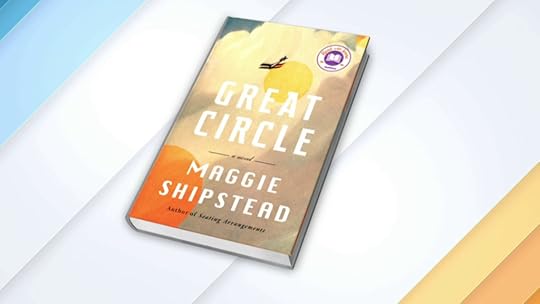 From a Google image Search – The Today Show
From a Google image Search – The Today ShowMaggie Shipstead’s book Great Circle is a multi-saga. It’s a family saga, a historical saga, a saga of a girl with a goal, so a cultural saga of women’s struggles. The only part of her story that is true is the history bits, but Shipstead did her due diligence and she knows the flight records achieved with regularity after Kitty Hawk. Women who flew were a key target of her studies. In the midst of her prose story she will recite a timely fact about a milestone accomplished by a pilot.
Marian and Jamie Graves lost their abused and understandably reluctant mother as infants when the ship their father, Addison Graves, was captaining exploded and sank. Their father was sent to Sing Sing prison for disobeying the code of captains at sea in order to save the twin infants. The children grew up under the neglectful care of their painter uncle, Wallace Graves, addicted to gambling and drinking. When Addison was released he took one look at the young twins and walked away, unable to believe that he would be a good father. (In fact, there are a lot of reluctant parents in this book and perhaps an argument for the individualism promoted by free-range parenting.)
Years later, in 2014, if you go by chronology, we meet Hadley, a young actress whose life parallels Marian’s. She also lost her parents and was raised by an uncle. Her parents died when their plane crashed into Lake Superior. In the midst of a boyfriend scandal, Hadley, hoping to rehab her reputation takes on the role of Marian Graves, a heroine of her childhood from a book recommended to her by a school librarian. So, the story becomes a two-fer and the modern “Marian” is not necessarily having an easier time of it than the Marian of the last century who tried to navigate a life that went against the cultural grain.
Great Circle is not just a fictional saga though. Marian’s story tells us about obstacles women face when they don’t feel comfortable within the narrow norms that circumscribe women’s lives. Marian’s fascination with the poles, the ultimate test of cold places which was a male domain, and her encounter with a married pair of barnstormers who stay with her uncle and take her up for her first flight, sets the course for her life. Her uncle cannot hold on to money. In order to learn to fly Marian delivers bootleg liquor and wine during Prohibition. She is young and slight. She can pass for a boy if she dresses in overalls and pulls a hat low and tries not to make eye contact. This works until she meets Barclay McQueen, a wealthy, powerful and seemingly respectable criminal. He is fascinated by Marian but she is too young. He woos her with pilot lessons and airplanes, wins her reluctant hand in marriage, and tries to control her and tame her by forcefully raping her until she is pregnant. Once Marian wins her freedom she flies, literally and figuratively. Her life’s trajectory faces the constant limits on what is allowed for women. Marian always finds ways to fly. She even finds ways to love who she loves, finding herself in love with Ruth and Caleb at the same time.
Hadley, our modern “Marian”, star of the movie Peregrine about Grave’s life and disappearance/death, still, in the twenty-first century, finds herself, at the beginning of her career in a #metoo moment. Even later in her career she finds herself in the midst of sexual shaming, which leads to her losing her star role in a TV series called Archangel. However, she has gained some equanimity over the years and is freed to accept the role in Peregrine, a possible future indie success with greater heft than her former roles.
The novel is readable and long, although it doesn’t really seem long. Do the themes justify the length? There is some really good writing in there. It gives us two great stories and many side stories. Could the author had made more of the great circle analogy so that when the moment came for Marian to tackle her dream it seemed like a true culmination? Possibly. The novel still accomplishes a lot and the characters may have longevity and enter that group of fictional people who we perceive as real. Only time will tell. Is Marian’s Great Circle dream ever realized? Perhaps. But culturally our goals might rather be to break some great circles, send the lines off in new directions that offer far more freedom from gender roles and rules.
June 12, 2021
The Midnight Library by Matt Haig-Book

From a Google Image Search – BiblioCoach
Nora Seed is depressed. She has lost so many things recently. When a man she is attracted to knocks on her door in the midst of her despair, she thinks things might be looking up, but he is just there to tell her that he thinks her cat, a ginger tabby named Voltaire, is dead at the side of the road. He stays to help her bury the cat, but then she is late for her job at String Theory, a shop that sells albums and musical instruments, so she gets fired. Her only piano student’s mom tells her that Leo will no longer be taking lessons. She looks back over her life and sees that she has been unable to commit to anything and that this has caused pain to her brother Joe and to others in her life. She tips over the scary edge and swallows enough pills to end her miserable life, but she ends up in a limbo between life and death (with lots of talk about Schrodinger’s cat) in The Midnight Library with Mrs. Elm, the school librarian who helped her when she was younger.
The Midnight Library is a place we might all want to visit. Nora is faced with a big book of her regrets, which become far less of a weight once she has made it through the book. The shelves are infinite and all the books are green. Nora is able to go back to each moment in her life when she chose a path and see what would have happened if she stayed on that path. The Midnight Library is not endlessly patient. There are rules that can be broken with existential results. Nora has a degree in philosophy and knows all about existential results. But she longs for an authentic life such as that of Henry David Thoreau.
Matt Haig is the author of this book and we readers always get a little nervous when a male author chooses to feature a female character. Did Nora Seed have to be female? Perhaps in this tale the gender of the main character doesn’t matter as much because, although this is an interesting concept and a good story, it doesn’t have the literary heft or the philosophical depth that it could have had. There is a certain Faustian quality to Nora’s library research. She doesn’t have to sell her soul, but she has to remember that her corporeal body is alone in her apartment flickering between life and death. The concept of The Midnight Library is interesting and the plot resembles time travel, but the overall effect is quite quotidian and therefore a bit disappointing. Enjoyable, just not profound.

